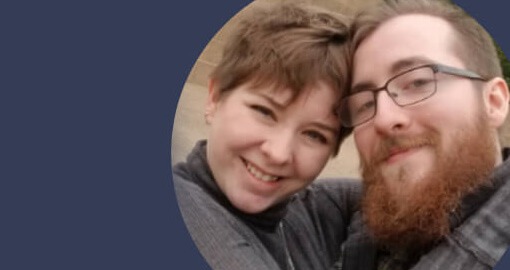Written by Shannon,
Brightside Health
5 Minute Read
When you aren’t feeling good about yourself, it can be really difficult to reach out to people and socialize, let alone try to meaningfully connect with others. You might be feeling especially vulnerable, anxious, and unmotivated, all of which can make it feel much easier to turn inward and avoid social interactions.
The catch is that social connection is actually a critical part of preventing and reducing symptoms of depression for many people. In fact, according to a 10 year study from the University of Michigan, people with the lowest quality social relationships have more than double the risk of depression than those with the highest quality social relationships. Additionally, people who have poor quality relationships with a spouse/partner or with other family members also experience higher rates of depression.
Relationships can be complex and challenges will always come up, especially when we’re not feeling our best. But making a concerted effort to maintain, rebuild, or establish new social connections is an important part of overcoming depression and creating a system of support for yourself.
Why do we need to feel connected?
We are innately social creatures; we don’t just want to feel connected to others, we actually need to. Now, the answer to the “why” likely lies in human evolution. Early on, living in isolation would have meant an almost certain death by predators, starvation, and more. Banding together into groups and family units helped ensure we could weather the ups and downs of sickness, finding food, building shelter, and more. Ultimately, we leaned on one and other to ensure our survival.
While we may not be fending off actual predators and hunting for our food anymore, the essence of these primal needs continue to live on in us. Being more connected to other people means being more resilient and being better able to weather the ups and downs that life inevitably throws our way. This resilience can mean having the emotional support to make it through tough times as well as more literal support like shared resources or financial help. In any case, we know that being connected to others makes us more resilient, which helps us get through. We all need, and deserve, that kind of help.
So what can I do to be more connected?
Building, maintaining, and even re-building social connections can be hard work and require intentional effort. Here are a few steps you can take:
- Reach out
Make a point to talk or get together with close friends and family frequently and consistently, even when you don’t feel like it. A good starting point is to aim for at least once a week. When you can, be open with family and close friends about what you’re experiencing – this can help deepen the connection you already have and give them the opportunity to provide support that can help you. - Address conflict
As much as we wish it would, conflict in our intimate relationships rarely goes away on its own. If you’re experiencing conflict or tension in a relationship, talk through it. Express how you feel and be sure to really listen to how the other person is feeling. Reaching out to a therapist for help is a great option if you’re struggling with communication. Also remember that not every relationship can or should be resurrected – set boundaries for yourself by getting out of toxic relationships and focusing your energy on healthy ones. - Cultivate friendships
If you’ve been depressed, chances are that you’ve withdrawn from some of your friendships. Make a schedule or set reminders for yourself to reach out to one friend a week that you haven’t talked to in awhile. Try to be open and direct about what you’re going through – it can feel scary to be vulnerable like this, but good friends will be able to hear it and show up for you. - Find common interests
Not all relationships have to be grounded in something super deep – some social connections can just be about shared activities and having fun. Get out and try something that you genuinely enjoy where you’ll meet other people. Exercise, art classes, and community service are all great places to meet and connect with people who have similar interests. - Help someone else
While depression can often make us feel worthless and want to turn inward, making the effort to help another person can stimulate positive cycles and create real connection. Help someone who needs it, even if they don’t ask, and don’t expect anything in return. You’ll like how it makes you feel.
Takeaways
Cultivating social connections is an important part of managing depression. “Strong and healthy relationships can help us better cope with depression. We’re hardwired to need to feel connected to other people,” says Mimi Winsberg, MD. It’s crucial to prioritize social interaction and connection as part of your depression treatment plan.
Social media can be a helpful, low impact way to feel connected to people when you feel withdrawn. But, it’s important to be mindful of how much time you’re spending using it and how it makes you feel in the moment. Moderate use of up to 30 minutes per day has been shown to help people feel more connected, but spending any longer than that may actually increase feelings of depression and anxiety. Try to limit your social media use to a couple of times per day and not more than 30 minutes total.
Reaching out for support from others can feel overwhelming at first, but by taking small steps that turn into habits you can build meaningful connections over time. Remember that wherever you are is the perfect place to start.


















